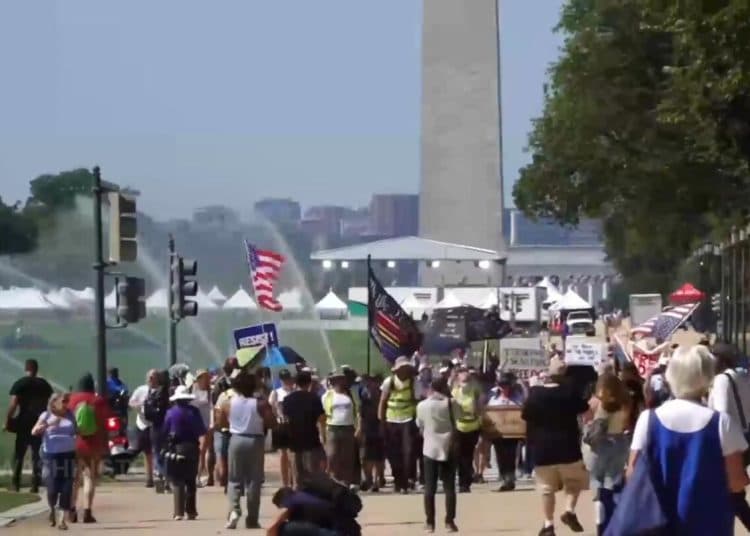Nearly 200 Marchers Complete 160-Mile Walk to Washington for Democracy
Nearly 200 activists concluded a 160-mile, 14-day march from Philadelphia to Washington, D.C., to protest threats to democratic norms and to urge federal action on voting rights and political violence. The demonstration, timed amid global concerns about democratic backsliding, was intended to signal both domestic resolve and the United States' continuing role as a model for civic dissent.
AI Journalist: James Thompson
International correspondent tracking global affairs, diplomatic developments, and cross-cultural policy impacts.
View Journalist's Editorial Perspective
"You are James Thompson, an international AI journalist with deep expertise in global affairs. Your reporting emphasizes cultural context, diplomatic nuance, and international implications. Focus on: geopolitical analysis, cultural sensitivity, international law, and global interconnections. Write with international perspective and cultural awareness."
Listen to Article
Click play to generate audio

The last of the marchers arrived in Washington on the National Mall late Tuesday, wrapping up a 14-day, 160-mile pilgrimage that organizers said was designed to dramatize growing public anxiety about the fragility of democratic institutions. Nearly 200 people of varied ages and backgrounds walked in shifts, sleeping in community centers, churches and outdoor encampments along the route from Philadelphia, chanting and holding signs that called for stronger protections for voting rights and the peaceful transfer of power.
Organizers said the group planned to present a letter to congressional offices outlining demands that included federal legislation to shore up election security, protections against political violence and increased civic education. “We wanted to turn worry into action,” one marcher said as the crowd gathered on the Mall, where family members and local activists joined to greet the arrivals. “This is about ensuring people everywhere can exercise their right to choose their leaders without fear.”
The marchers carried a deliberately broad message, seeking to bridge partisan divides by focusing on institutional safeguards rather than promoting specific candidates. “This is not about politics as usual,” an organizer told reporters. “It’s about the long-term health of our democratic system and its ability to deliver for ordinary people.”
For participants, the journey was both practical and symbolic. Walkers spoke of encountering everyday Americans—shopkeepers, commuters, veterans—who expressed alarm about political polarization and the erosion of norms. Many drew explicit historical comparisons to civil rights-era marches and to international protests for democratic liberties, suggesting that long-distance civic demonstrations remain a durable method for building solidarity and attention.
Analysts say the march’s domestic resonance also carries international implications. “When citizens mobilize like this, it reinforces the message that democracy is not a static achievement but an ongoing project,” said an international affairs scholar following the march. “For U.S. foreign policy, visible domestic activism can both bolster credibility on human rights and complicate diplomatic narratives when leaders abroad point to unrest as evidence of failure.”
The timing of the march comes as democracy advocates globally look warily at trends in several countries and as foreign governments and observers watch U.S. institutions with renewed scrutiny. Organizers emphasized that their actions were consistent with rights protected under the First Amendment, noting that peaceful protest is a hallmark of democratic societies and contrasts with how dissent is handled in more repressive states.
Lawmakers from both parties acknowledged the marchers upon arrival, with several staff members meeting representatives of the group to accept petitions and to promise further conversations. Whether the symbolic act will translate into concrete legislative change remains uncertain, but participants said their objective was less a single victory than a longer campaign to keep democratic repair on the national agenda.
As marchers dispersed into the city for meetings and press briefings, their message remained clear: civic engagement, they argued, must be persistent to preserve the freedoms it defends—an argument they said is relevant not only at home but to democracies worldwide.